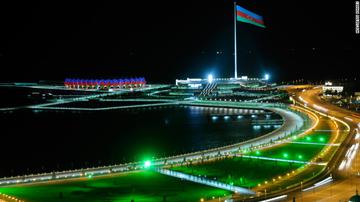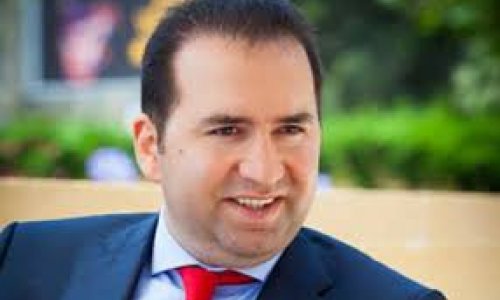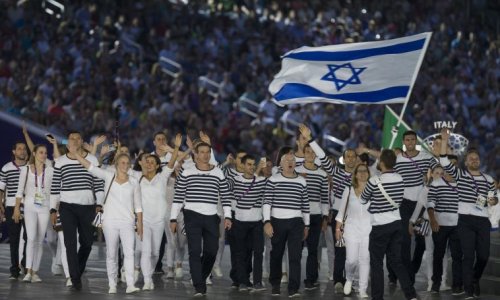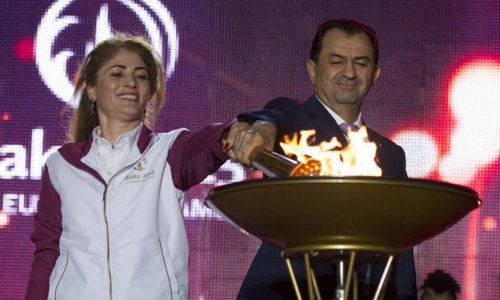This month marks the start of a new era: on June 12th, Azerbaijan brings up the curtain on the first-ever European Games when its capital, Baku, will welcome some 6,000 athletes to this inaugural sporting festival.
The Games, which will take place every four years, were brought into being at a vote by members of the European Olympic Committee (EOC) in 2012 and announced at a meeting of the body's General Assembly in Rome that December. Thirty-eight of the 49 EOC members backed the Games, which provide a European equivalent of the multi-sport Asian Games and the Pan-American Games, both of which have been part of the calendar since 1951.
Representatives of 50 European nations will compete, with the opening ceremony taking place on Friday June 12th and the closing ceremony being held on Sunday 28th. The committee said the event "is in no way intended to be a copy of the Olympic Games" and is "a tool with which to enhance the attractiveness of sport."
Which sports are being showcased?
The new Games will play host to some new disciplines after the Olympic Committee made its selection from an "overwhelming" number of suggestions. Twenty sports will be on the agenda -- 16 Olympic events and the other four making their debuts in this format.
First, the familiar ones: aquatics, archery, athletics, badminton, judo, volleyball, boxing, canoe, cycling, fencing, gymnastics, shooting, table tennis, taekwondo, triathlon and wrestling will all be there.
And what of the newcomers? Well, they're 3x3 basketball, karate, beach soccer and sambo. The first three are self-explanatory -- but what exactly is sambo? And how do you do it?
Sambo has its roots in the military history of the Soviet Union, of which Azerbaijan was a part. A martial art, it was devised as an element of Red Army training in the 1920s with the intention of sharpening soldiers' hand-to-hand combat skills. Throwing, groundwork and submissions are all elements -- the sport has echoes of both wrestling and judo, but rules and restrictions are different -- and the name is a truncated version of the Russian for 'self-defence without weapons.'
We can probably expect Russia to do well in this one.
What are the incentives for athletes?
They are twofold: both the winning of medals for their country and opportunities to qualify for the 2016 Rio Olympics. Baku will host 253 medal events, with direct Olympic qualification at stake in disciplines including the triathlon.
What do we know about Baku?
We know there had been initial thoughts that Russia and Turkey would be in contention to be host nation -- but Azerbaijan was the only bidder, and Baku, with a population of around 2.5 million, takes its place in the spotlight.
The city, the largest in the South Caucasus and the biggest on the shores of the Caspian Sea, mixes the influences of east and west and, at the heart of an oil-rich nation, has plenty of conspicuous wealth: there are gleaming office towers and the boulevards at its centre are home to high-end shops.
Look beyond the shininess, though, and you'll find the true heart of the place -- the walled Old City, a UNESCO World Heritage Site, has its origins in the 12th century, while lush green promenades wind around the coastline.
What does Azerbaijan hope to gain from hosting the Games?
Azerbaijan wants to put itself and its capital at centre stage, with sports minister Azad Rahimov saying in an interview with the Guardian newspaper: "The main important thing is to position our country on the map of the world and our country on the map of Europe.
"The best instrument to do that is sport and culture. Sport has a bigger potential for reaching the most people."
The Netherlands is set to host the second European Games, which will take place in 2019".
www.ann.az
Follow us !









